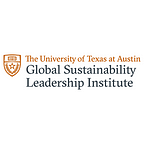Our Summer as Social Impact Internship Fund Fellows
Emily Hopkins, MBA ‘20
Jess Mills, MBA ‘20
Texas McCombs MBA students have the unique opportunity to receive financial support during their impact internships through the Social Impact Internship Fund, or SIIF! SIIF is a peer-created fund that provides financial support for MBA students pursuing internships in the social impact space. MBA students offer support by pledging a “day of pay” from their own internship salaries to benefit SIIF fellows pursuing careers in fields such as sustainability, nonprofit and other nontraditional sectors. The SIIF encourages MBA students to pursue social impact careers by lowering the financial burden of entering less lucrative internships in social impact as compared to traditional paths such as consulting and technology.
Two students received a SIIF stipend last summer. You can read about their experiences in this months’ Impact Connections blog below!
Jess Mills, Ashoka Johannesburg, South Africa
South Africa was not even close to being on my radar in August 2018. Even when I made contact with Ashoka’s Southern Africa office it felt like an unreal possibility that I might do my MBA summer internship in Johannesburg. But I somehow ended up there, working for 2 months for Ashoka, an international nonprofit accelerator for smaller nonprofits.
Ashoka has thousands of Fellows around the world — social entrepreneurs with promising business models and track records of social impact — including more than 400 in Africa. The “Africa Diamond” at Ashoka (4 regional offices: Southern, East, West, and Sahel) does a lot with a little, operating much like a startup. Everyone wears multiple hats, juggles numerous continent-wide projects, and works long hours to create a more developed and fairer Africa.
Working there was a trial by fire. I didn’t have much time to learn the ropes or wrap my head around their portfolio of projects. I didn’t have a formal onboarding. My first 45 minutes on my first day was a rapid introduction to their portfolio, the status of each project, and then I was left to my own devices to make myself useful without getting in the way of a 5-person team cramped into a one-room office in a northern Johannesburg co-working space.
I ended up spending most of my time on two main projects. First, I compiled and edited a compendium of case studies that looked at best practices for how Ashoka’s social entrepreneur Fellows can effectively work with corporate partners. Ashoka wanted to highlight their stories to provide a blueprint for other entrepreneurs and corporations to form new partnerships. Cases spanned the continent and industries: from prescription medication in Senegal to coffee farming in Uganda and affordable housing in Kenya. I worked directly with the entrepreneurs and corporate partners to make sure we translated their strategies and business models into a digestible, copiable roadmap, and was constantly inspired by how they are able to do so much with so little, especially in a less predictable or stable business environment.
At the same time I redesigned a program Ashoka Africa had been trying to get off the ground for a year or so that would create a formal network of corporate partners who could join as members and provide instruction to entrepreneurs through measurable, formal channels, thus raising money for Ashoka and creating a streamlined channel for businesses to engage with innovative social entrepreneurs, in addition to being able to leverage each other’s resources and networks. I prepared a 5-month roadmap that detailed how to launch and scale the new program before Ashoka’s Impact!Africa Summit in December. Beyond the fascinating work, I got to know a different culture, traveled all over the continent (for leisure, not business), and made friends from all over the world. It was definitely one of the most formative and rewarding experiences I’ve ever had.
Emily Hopkins, Austin Technology Incubator Austin, Texas
I spent the summer at Austin Technology Incubator (ATI), the startup incubator at UT. ATI focuses on Austin startups in the Energy, Food/Ag, Water, Healthcare and Circular Economy fields. I worked specifically with the Director of the Circular Economy vertical. “Circular Economy” refers to an economy where resources are recycled, reused, and upcycled, therefore making our cycles of consumption more “circular”. This is important given the current environmental strain on our resources, but also good for business, as reuse and recycling can have financial impacts for firms as well.
My project for the summer was to analyze the landscape for Circular Economy entrepreneurs and determine how ATI could add the most value to this landscape given its current position. I learned so much from conversations with various organizations and companies in the Circular Economy space, and was able to deliver a set of recommendations that will hopefully help ATI move forward by leaning into their strengths and opportunities.
I also learned a lot from the ATI staff, as they have many years of experience working with early stage companies in Austin. I was given the opportunity to sit in on strategy sessions with portfolio companies, and participate in company screenings for companies applying to join the incubator. The exposure to startup company strategy really helped solidify so many business concepts for me. ATI does important work for Austin entrepreneurs and the Clean Tech and Health Care startup communities, and I really enjoyed being able to be a part of this for the summer!
